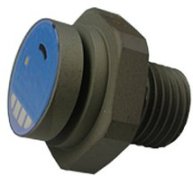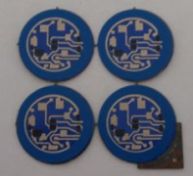Titanium-Hybrids
Hybrids are made on ceramic but with innovation we now make them on stainless steel and titanium. These ceramic PCB's, stainless steel PCB's and titanium PCB's enable products to work well in hostile environments and have greater reliability over time than PCB's.
Applications for hybrid circuits are endless and include temperature sensors, pressure sensors, flow sensors and stain gauges, water pump applications, baggage x-ray machines, scientific instruments, data loggers, components for cars, solar cells and electrical safety devices just to name a few.
By using Titanium we can make sensitive, reliable and cost effective strain elements and associated circuitry for applications such as pressure measurement.
Titanium substrates make the hybrids of the future.
Top Ten Things you should know about Titanium:
- Titanium has a low density
- Titanium has good lightweight strength
- Titanium is easily fabricated
- Titanium can withstand extremes of temperature
- Titanium has an excellent resistance to corrosion (especially sea water)
- Titanium is more flexible than steel
- Titanium is stronger than steel
- Titanium is much lighter than steel
- Titanium makes an excellent hybrid
- Titanium is expected to be cheaper than Stainless Steel in the coming years
|
Why make Titanium Hybrids?
Titanium hybrids have the following benefits:
- Improved strain sensor sensitivity over Stainless Steel by two to six times, depending on the Grade or Alloy of Titanium chosen
- Improved strain sensor temperature co-efficient of resistors (TCR) (i.e. change of resistor value over temperature) under 100 ppm/oC and as low as 50 ppm/oC. Hybrid Electronics can tailor the TCR for the end product
- Increased strength up to three times that of Stainless Steel
- Nine times better flow sensing sensitivity over Stainless Steel
- Co-located Heater and Thermistor element flow sensing (including flow direction sensing) and very low power applications
- Flow measurement for liquids and gases
- Thick (>2mm) and thin (<0.4mm) Titanium substrates can be used depending on application
- Mains voltage applications
- The "Hybrid is the box". It does not require to be mounted in a box.
- Versatility of environments eg. water, extreme high and low temperatures, under ground and in the atmosphere
- Titanium hybrids do not replace Stainless Steel or Ceramic hybrids
- Titanium hybrids expand the applications for thick film hybrids
|
 |
Titanium Hybrids have inherent advantages over PCB's. Not only can they stand the heat, but also, they:
- are smaller in size
- are more reliable
- can be encapsulated for secrecy
- offer greater precision, and
- do not require mounting in a box
|

|
|
